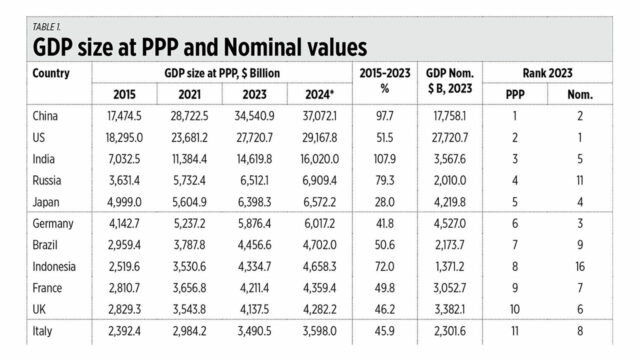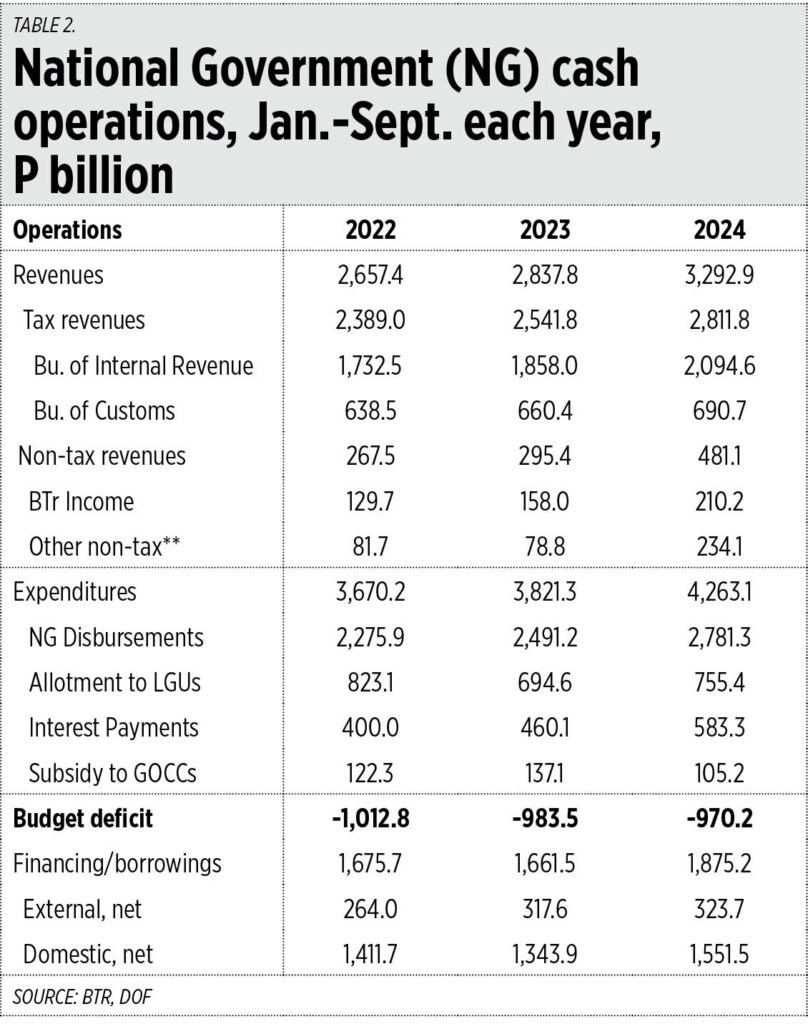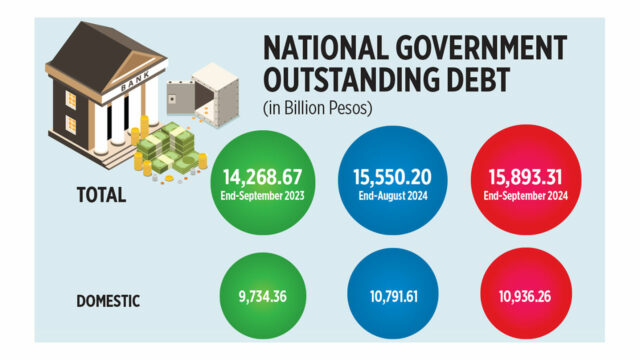PAT GELSINGER took the reins as Intel chief executive officer (CEO) three years ago with hopes of reviving the American industrial icon. He soon made a big mistake.
Intel had a sweet deal going with Taiwan Semiconductor Manufacturing Co. Ltd. (TSMC), the giant manufacturer of semiconductors for other companies. TSMC would make chips that Intel designed but could not produce. And it was offering deep discounts to Intel, say four people with knowledge of the agreement.
Instead of nurturing the relationship, Mr. Gelsinger — who hopes to restore Intel’s own manufacturing prowess — offended TSMC by calling out Taiwan’s precarious relations with China. “You don’t want all of your eggs in the basket of a Taiwan fab,” he said in May 2021, using industry jargon for a chip fabrication plant. That December, encouraging US investment in US chipmakers, he said at a tech conference: “Taiwan is not a stable place.”
In public, TSMC downplayed the comments, with its founder calling Mr. Gelsinger “a bit rude.” Privately, TSMC said it would no longer honor the discount, the sources said: about 40% off the $23,000, three-nanometer wafers on which TSMC would print chips for Intel. Intel had to pay full price, shrinking its profit margin on the deal.
Asked about the previously unreported episode, Intel said TSMC is an important partner with which it has a “healthy business relationship today.” TSMC told Reuters Intel is an important customer.
Mr. Gelsinger’s affront to Taiwan was part of a series of missteps during his time as Intel CEO. He inherited a troubled company that had lost its edge in manufacturing skills and had ceded to rivals the hugely lucrative markets for chips used in mobile phones and artificial intelligence (AI). But Mr. Gelsinger compounded those problems.
This account of his rocky tenure is based on interviews with about four dozen current and former Intel employees and executives, as well as internal company videos, supplier documents, and regulatory records.
Mr. Gelsinger set sky-high expectations for Intel’s manufacturing and AI capabilities among major clients but fell short, losing or canceling contracts or unable to deliver the promised products. He issued optimistic public projections for AI-chip deals that were far higher than Intel’s own internal sales forecasts, company insiders say.
And like TSMC, Mr. Gelsinger sought to transform Intel into a “foundry,” an operation that makes chips designed by other companies. But Intel’s efforts to regain manufacturing leadership with a chip-production process called 18A have faced delays and technical problems, with some customers so far declining to use it.
Intel declined to make Mr. Gelsinger available for an interview.
“Pat is leading one of the largest, boldest, and most consequential corporate turnarounds in American business history,” Intel said in a statement. “3.5 years into the journey, we have made immense progress — and we’re going to finish the job.”
Intel’s revenue shriveled to $54 billion in 2023, down nearly one-third from the year Mr. Gelsinger took over. Analysts expect Intel to lose $3.68 billion this year, its first annual net loss since 1986. Its shares closed at $22.92 on Monday, off 66% from a peak hit in Mr. Gelsinger’s first months as CEO.
The crash in Intel’s share price has sparked takeover interest, Reuters has reported. Intel has vowed to restructure and to cut more than 15,000 jobs.
Intel said it won’t let merger speculation distract it from executing its five-year turnaround plan. Under Mr. Gelsinger, Intel said, it has revamped its operations, secured up to $45 billion in US support, led the market for AI PC chips, and “achieved a historic pace” of innovation.
Intel told Reuters its 18A fabrication technologies are yielding good-quality chips and that it “expects to return to process leadership in 2025” with their formal launch. The company said it objects to the “usage of rumors, leaked materials, half-truths and interviews based on the widest net that can be cast for ‘sources’ to gain negative commentary on Intel.”
Customers have little incentive to bet on Intel’s manufacturing when TSMC continues to serve them well, said Goldman Sachs analyst Toshiya Hari. “If you care about performance today, tomorrow, next year, over the next couple of years, you are not making that bet,” Mr. Hari said.
Still, Commerce Secretary Gina Raimondo said in September US manufacturing represents a supply-chain “insurance policy” that major chip designers would pay for. “They should want US-made leading-edge chips,” she said.
Intel’s stumbles have implications for US industrial policy. Mr. Gelsinger’s vow to create a foundry raised hopes in the Biden administration that Intel would help bring chip production back under US control on US soil.
A White House spokesperson said that a bill championed by President Joseph R. Biden, the CHIPS and Science Act, aims to invest in not one but dozens of companies strengthening the semiconductor supply chain. Intel has won more than $11 billion in proposed funding under the act.
Mr. Gelsinger’s journey at Intel started in 1979 when he was 18. He stayed for 30 years, coming under the tutelage of Andy Grove, Intel’s legendarily demanding former CEO, which Mr. Gelsinger likened to “going to the dentist and not getting Novocaine.” Mr. Gelsinger became Intel’s first chief technology officer but left in 2009 around a restructuring.
Intel changed while he was away. Its so-called “Grovian” culture of constructive confrontation — one that encouraged peers to challenge each other with data — faded away. Intel also missed huge market opportunities. It stuck to its strengths, chips for desktop computers and servers. But it passed on a chance to produce semiconductors for the iPhone and declined to fund breakthrough artificial-intelligence company OpenAI.
His return in February 2021 gave a boost to Intel. Investors cheered his appointment, sending shares up nearly 7% on the day of the January announcement. Employees said they celebrated having a technologist back in charge.
Intel, in Mr. Gelsinger’s view, needed to execute at a “torrid” pace. He at times wore a black T-shirt, available to buy at Intel’s company store, with the word “torrid” emblazoned on it. The energetic CEO did push-ups and jumping jacks before speaking at Intel events, a witness said.
The bet on which Mr. Gelsinger staked Intel’s future came less than two months into his tenure: a global foundry that could vie with TSMC. In March 2021, he promised to invest $20 billion in two Arizona factories. That July, he said Intel also would develop five manufacturing processes in four years. Among them was 18A, a bundle of technologies under development that he hoped would restore Intel’s manufacturing excellence.
Mr. Gelsinger pushed for Congress to subsidize American chip manufacturing. In January 2022, he stood with Mr. Biden to announce another $20 billion for two factories in Ohio. Mr. Gelsinger told Reuters at the time that Intel’s commitment in the state might reach $100 billion to create “the largest semiconductor manufacturing location on the planet.”
‘FIVE REASONS TO BELIEVE’
Chip sales boomed in the COVID-19 pandemic, when consumers gobbled up tech gadgets. By the spring of 2022, with product prices spiking and workers returning to offices, a glut emerged. Intel’s revenue from personal computer chips dropped 25% in the second quarter of 2022. And it lost market share for chip sales in data centers to Advanced Micro Devices, while companies such as Amazon.com and Google increasingly designed silicon in-house.
Mr. Gelsinger called on staff to keep the faith. In regular video dispatches, he set out “five reasons to believe” in Intel, say four people who saw them. In an early video, seen by Reuters, he urged employees to “believe deeply in your heart and soul Intel’s best days are ahead.”
Intel said Mr. Gelsinger “consistently balanced his optimism with a clear-eyed view of the challenges inherent in getting there.”
Mr. Gelsinger was optimistic with clients, too. He oversaw a deal to build custom chips for Alphabet’s growing fleet of Waymo self-driving taxis, set to roll out across the US, three people familiar with the previously unreported plans told Reuters. Mr. Gelsinger personally discussed the deal with Sundar Pichai, Alphabet’s CEO, two of the people said.
But after Intel’s outlook worsened in 2022, the company canceled the Waymo deal, the two people said, and paid a fee to Alphabet after Alphabet threatened legal action.
Sandra Rivera, who formerly ran Intel’s data center group and is now CEO of Intel-owned Altera, said in an interview that her team cut the Waymo project after a corporate reorganization required her to make “decisions about the entire portfolio.”
Intel said it has a strong partnership with Alphabet and declined to discuss the project. Alphabet declined to comment on the matter.
Mr. Gelsinger announced cost cuts in October 2022 to bolster Intel while he continued to pour money into factories. The company said it would save $3 billion starting the following year from steps such as business exits and layoffs.
Under his watch, Intel’s headcount had risen to some 132,000 employees by the end of 2022 from about 111,000 when he joined. In its statement, Intel said the “unprecedented pace” at which it developed technology and capacity necessitated such hiring.
CHATGPT MOMENT
Nvidia’s graphics processing units, or GPUs, posed a new challenge in November 2022. That month, OpenAI launched ChatGPT, an AI chatbot that could conjure human-like prose on command. It became history’s fastest growing software application at the time. Nvidia’s chips power the data centers behind ChatGPT.
Originally designed for video games, researchers discovered years ago that GPUs are useful for AI applications. They could handle vast numbers of simultaneous calculations better than central processing units, or CPUs, from Intel.
Nvidia saw its stock triple in eight months, notching a $1-trillion valuation. Intel’s stock saw choppy trading; it cut base pay for mid-level workers and restricted promotions and bonuses.
Mr. Gelsinger too would take a salary cut, Intel said. Still, his total compensation, including stock awards, rose to $16.9 million in 2023 from $11.6 million the year before, a proxy filing shows.
Around this time, Mr. Gelsinger had high hopes for Intel’s Gaudi chip, a so-called AI accelerator — a processor that improves the performance of artificial intelligence applications. Intel touted the chip – designed in-house and made by TSMC — as an alternative to Nvidia’s often scarce GPUs.
Teams at Intel estimated it could sell at most $500 million in AI chips, three people familiar with the forecast said. In a meeting with executives in the second quarter of 2023, Mr. Gelsinger said this number was not high enough. Intel needed to tell Wall Street it could hit at least $1 billion at a time when Nvidia’s comparable sales were far higher, one of the people cited Mr. Gelsinger as saying.
Mr. Gelsinger touted the $1-billion figure in public. On Intel’s July 2023 earnings-results call, he told analysts of “surging demand for AI products.” He added: “Our pipeline of opportunities through 2024 is rapidly increasing and is now over $1 billion and continuing to expand with Gaudi driving the lion’s share.”
According to one of these sources and another person briefed on the matter, Intel at the time of Mr. Gelsinger’s announcement had not secured anything near the supply needed from TSMC to sell $1 billion in AI-accelerator chips. After Mr. Gelsinger demanded the billion-dollar target, Intel tweaked its math to justify it, lumping in chips unrelated to its marquee AI offering, two sources said.
Intel said Mr. Gelsinger’s comments accurately reflected prospective deals, not sales. “No company converts 100% of its pipeline into revenue,” Intel said. “We make no apologies for setting ambitious internal targets for our teams — and we will always try to exceed the goals we set for ourselves.”
As recently as January of this year, Intel told investors it had more than $2 billion in possible AI chip deals in the pipeline. In April, Mr. Gelsinger revealed to analysts a much lower AI revenue goal for this year: more than $500 million.
At times, Mr. Gelsinger has told leaders at major clients that Intel could furnish alternatives to Nvidia’s GPUs, said three people familiar with the talks — including for Microsoft and Amazon Web Services, two of them said. When customers sought details, Intel managers had little to show and some deals didn’t happen, the sources said.
Microsoft declined to comment. Amazon referred Reuters to recent news about its work with Intel.
Intel has struggled to pick an AI-chip strategy. It funded three projects simultaneously by 2019: a GPU of its own, and two other chips designed to perform AI calculations from a pair of companies it acquired. None of the three made significant inroads against Nvidia or AMD, Reuters has reported.
On Intel’s GPU efforts, Ms. Rivera, the former data center chief, told Reuters: “It’s a journey, and everything looks simpler from the outside.”
Intel said the strategy anticipates how businesses will want to run AI more cheaply and how it alone can serve AI chip-design and manufacturing needs.
MANUFACTURING WOES
Mr. Gelsinger kept pushing ahead despite setbacks, with Intel trumpeting factory expansions that would cost more than $60 billion. Then, this summer, he hit the brakes on some of these construction plans.
Intel’s ambitious new process for making chips for other firms — 18A — also remains a question mark.
Some customers have been disappointed by what they’ve seen of 18A.
When one big prospect, chip and software company Broadcom, sent foot-wide wafers through Intel’s 18A process, the process was not ready for high-volume production for external customers, Reuters reported in September. No more than 20% of the chips printed via 18A passed Broadcom’s early tests, two people briefed on the results said. That is low compared to TSMC’s early-stage yields.
Broadcom told Reuters it has “not concluded” its evaluation of whether to use Intel’s foundry.
On the day of the Reuters report in September, Intel issued a statement saying it was on track to launch 18A in 2025 and had released tools for partners and customers to plan chips for the process.
A recent planning document produced by an Intel supplier indicates delays, however. The document, seen by Reuters, noted the supplier is still waiting to receive another digital design kit it needs to push ahead. It also lacked access to Intel factories, a person with knowledge of the situation said. Customers have little prospect of making chips in high volume with the 18A process until 2026, two people said.
Apple and Qualcomm, among other potential clients, have passed on 18A for technical reasons, three people with knowledge of their decisions said. Both companies declined to comment.
Intel said it expects to reclaim leadership in chip-manufacturing processes in 2025 by launching 18A.
Mr. Gelsinger said in mid-September Intel had a “lot of work ahead,” but he continues to project confidence in his turnaround plan.
“I’m very confident that we’re going to pull it off,” Mr. Gelsinger told Reuters in August. “Three years in, yeah. This one’s going to happen, baby.” — Reuters
 HOTEL101 Global Pte. Ltd., a subsidiary of property developer DoubleDragon Corp. (DD), expects its hotel application to have one million registered users by yearend as the company expands its customer base.
HOTEL101 Global Pte. Ltd., a subsidiary of property developer DoubleDragon Corp. (DD), expects its hotel application to have one million registered users by yearend as the company expands its customer base.

















